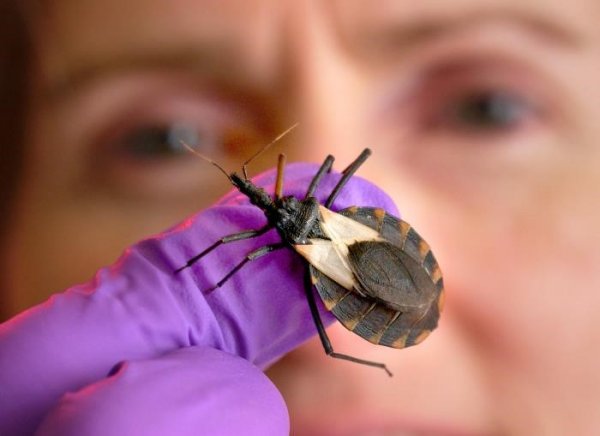New Chagas collaboration to aggregate and standardise data
IDDO has launched a new global Chagas scientific collaboration with the Drugs for Neglected Diseases initiative (DNDi). The new platform will collate and standardise data to accelerate better treatments for the 6–7 million people worldwide with Chagas disease.

Chagas disease, or American trypanosomiasis, is a poverty-related infectious disease caused by the parasite Trypanosoma cruzi, usually through the faeces of the blood-feeding triatomine bug. The disease is most common in Latin America, although increased migration and global travel mean it is spreading more widely to other areas.
There is a lot of clinical data in the field of Chagas research, but despite this, large-scale analyses have not been possible due to heterogeneity in the data or differing study designs. The new platform aims to amalgamate and standardise available individual patient data (IPD) to allow for more statistically powerful, in-depth analyses. This will help to produce a stronger evidence base to steer new strategies and treatments in the drive towards eliminating Chagas disease.
Dr Fabiana Barreira, Senior Clinical Manager at DNDi says: “This platform will strengthen collaboration between researchers and avoid duplication, which is critical in a context of limited resources. By formalising the sharing of data, it will enable us to answer the questions we have and potentially contribute to developing innovative treatments for people living with this deadly and silent disease”
Once in the body, parasites spread through the blood or lymphatic system, preferentially infecting cells in the heart or the digestive tract. Patients can remain asymptomatic for up to ten years while still infecting others. In 10–30% of cases, patients develop chronic and irreversible damage to the heart and digestive tract.
There are currently two treatments for Chagas disease that are effective during the acute and early chronic phases of the disease, however they are less effective when complications become more severe and have many side effects. There is currently no vaccine to prevent infection. With an estimated 70 million people at risk of contracting Chagas disease, improved treatment options that are safer and more effective are urgently required.
This new collaboration will explore key questions such as the optimal regimen of current drugs, understanding the effect of parasite clearance on disease progression, and whether the duration of the infection has an effect on the treatment outcome.
Professor Philippe Guérin, Director of IDDO, says: “Currently, large volumes of treatment data exist but making comparisons of efficacy between drugs, regimens and regions is almost impossible from publications. This collaboration with DNDi will improve outcomes for patients with Chagas disease by ensuring that all future scientific research is based on the most complete aggregation of the existing evidence."
Last year IDDO and other members of the Chagas community signed the Santa Cruz letter which was presented to the World Health Organization (WHO) calling on governments, organisations and donors to intensify efforts to control and eliminate Chagas. This new collaboration will help in the drive towards this goal.
Get in touch with us at Chagas@iddo.org and find out about IDDO’s work in other disease areas.
Find out more about Chagas Disease.
About data sharing
IDDO has integrated robust technical and statistical solutions to ensure the security and anonymity of data to maintain participant privacy and confidentiality. Only anonymised data are shared to the data platform.
About DNDi
A not-for-profit research and development organization, DNDi works to deliver new treatments for neglected patients, in particular those suffering with Chagas disease, sleeping sickness (human African trypanosomiasis), leishmaniasis, filarial infections, mycetoma, pediatric HIV, and hepatitis C. Since its inception in 2003, DNDi has delivered eight new treatments. DNDi’s strategy for Chagas disease consists of three pillars: improving diagnostic and therapeutic tools through innovation in research and development, fostering collaboration and strengthen capacity in endemic countries through a scientific platform, and increasing patients’ access to diagnosis and treatment.
